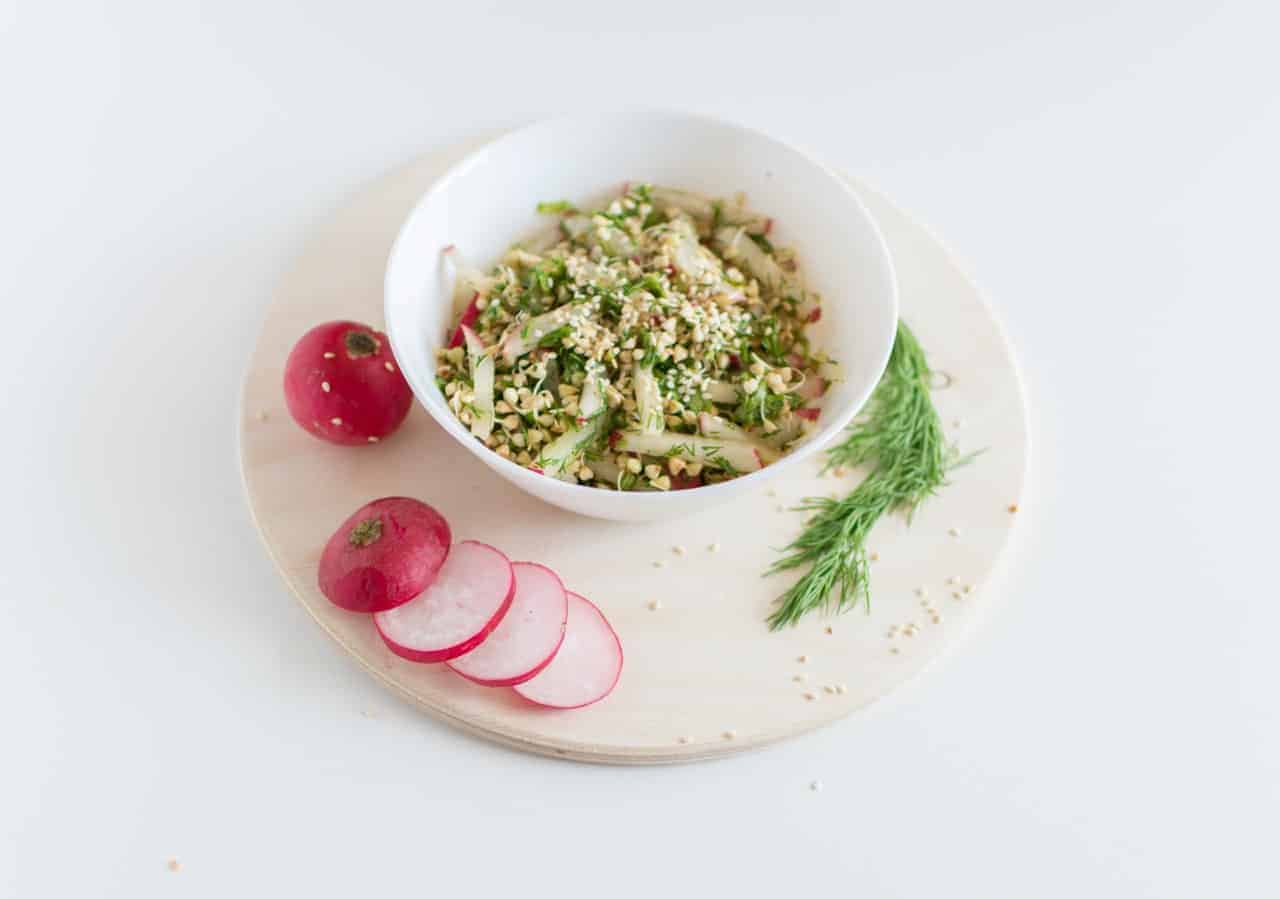Sprouted things like alfalfa and mung beans definitely provide a lot of health benefits, but when you buy them in the store, they tend to be quite pricey. However, sprouting is actually very easy to do at home. You can regrow sprouts forever so you always have access to tasty, fresh foods.
Sprouting plants is such an easy thing to do that even people without a green thumb can accomplish it. They take up very little space, so you can get many delicious meals out of one tiny mini garden set up on a windowsill or countertop. Keep reading to learn all about the process of sprouting at home.
Here’s how to grow your own sprouts at home:
The Health Benefits of Homegrown Sprouting Plants
Growing sprouted plants at home has some unique health benefits. All of the moisture involved with sprouting often causes commercial setups to be infected with dangerous bacteria like listeria. Sprouting items at home lets you carefully control the process and ensure that you get the health benefits without any bacterial contamination.
Most stores just have plain things like bean sprout and alfalfa sprout options. When you are making them at home, you have the option of more unusual plants that provide special health benefits. Great choices include adzuki beans, celery seeds, fenugreek seeds, hemp seeds, radishes, and sesame. Sprouting makes certain nutrients in seeds and legumes more bioavailable.
The DIY Guide to Sprouting Plants at Home
Follow these steps to get started on your culinary journey:
Step 1: Gather Your Materials
You just need some sort of glass jar that is roughly one quart in size. A mason jar is handy, but it is not required. You then need a piece of cheesecloth or some other straining mesh to fit over the jar. The outer metal rim of the mason jar comes in handy for securing it, or you can use a plain old rubber band.Once you have everything else, all you need is your sprouting seeds. There are plenty of delicious and healthy sprouts options.
Step 2: Soak the Seeds
Measure out the amount of seeds you want to sprout. Keep in mind that they will expand rapidly as they grow. For a quart sized jar, roughly ¼ cup of seeds is the maximum amount you can fit in the jar. Rinse your seeds thoroughly and place them in the jar with a couple cups of water. Attach the cheesecloth or strainer lid and allow them to soak for 8 hours at room temperature.
Step 3: Drain, Swirl, and Drain Again
After the initial soaking, drain all the water from your sprouts. Run fresh water in through your screen and swirl around to thoroughly wet each seed. Then drain the sprouts out again, and shake the sprout jar to make sure all water is removed.
Step 4: Store and Repeat
Put your sprout jar somewhere where direct sunlight will not get to it. You can place it a darker corner of your kitchen or wrap some foil around the jar. Just be sure that plenty of fresh air and some indirect light can get in through the screen. You then need to repeat step 3 somewhere between two to four times a day. This does not need to be at very precise times. You can just do the swirling and draining process each evening and morning.
Step 5: Wait and Enjoy
Wait until your sprouted seeds have the desired length. This may take between two to seven days. Once they are as grown as you would like, you can store them in the fridge or eat right away!
Tasty Sprouts Recipes to Try
The possibilities are endless once you get started with sprouting. An easy way to include them in your diet is just tossing a fresh handful into any salad. The hearty texture of sprouted seeds makes them a great inclusion on any vegetarian sandwich. Sprouts easily mix into a blended drink without impacting the flavor much, so you can easily toss them in with meal replacement smoothies. You can also use sprouts in tasty juiced beverages that extract all the great nutrients of sprouting and turn them into a refreshing juice.
Final Thoughts
Once you create your sprouting setup, the process is even easier. Each time you want another tasty batch of sprouted plants, all you need to do is clean everything out and add new seeds. There are plenty of great sprouts recipes out there, so you have plenty of ways to use up your produce. How do you like to turn your sprouted veggies into meals? Let us know your tasty ideas for sprouts recipes.
https://www.youtube.com/watch?v=yG-G9_LOkLA





















